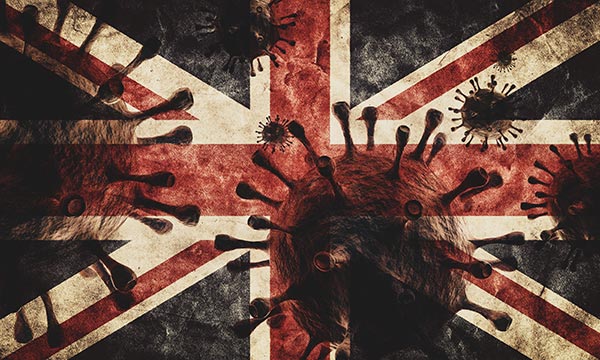 Parler
Parler Gab
Gab
Ebola outbreak in Uganda waning, vaccines unnecessary
The Ebola outbreak in Uganda began on Sept. 20 and has infected around 142 people in the country of nearly 46 million. Of these, 86 people recovered from the Ebola virus's symptoms, including hemorrhagic fever, vomiting, diarrhea, muscle pain and internal and external bleeding. Furthermore, the Ugandan government has noted that the country has not had an active Ebola case in nine days, with the last Ebola patient being discharged from the hospital on Dec. 2 after dealing with a bout of hemorrhagic fever. According to WHO criteria, an outbreak of the Ebola virus ends when there are no new cases for 42 consecutive days, which is twice the incubation period of Ebola. "We are nine days today on the countdown," said Aceng. "So, it does not mean we will not get another [Ebola] case. Uganda is a country that always wants to be prepared and ready whenever any outbreak occurs." If no new infections are registered, the Ugandan government expects to declare the country free of the virus by Jan. 10. But regardless of whether or not there are new Ebola cases, the vaccine trial will continue. "Even if there are no cases, and no contacts and no suspects, the Ministry of Health will still request the scientists to continue with the study," she added. "Uganda so far has had seven Ebola outbreaks. We may yet again get another Ebola outbreak." Both the WHO and the Ugandan government are interested in the vaccine trial because there are currently no licensed vaccines for the Sudan strain of the Ebola virus that caused the country's latest outbreak. The trial is being used to determine whether any or all of the three vaccine candidates are effective in combating the Sudan strain. Vaccines already exist for the more common Zaire strain of the Ebola virus, which spread during recent outbreaks in the neighboring Democratic Republic of the Congo. Learn more about disease outbreaks at Outbreak.news. Watch this clip from InfoWars featuring Harrison Smith discussing how the Ebola outbreak in Uganda made globalists "rub hands and drool" at the opportunity to exert more control over the world. This video is from the InfoWars channel on Brighteon.com.More related stories:
Uganda declares three-week lockdown in two districts amid new Ebola outbreak. Endless fear merry-go-round: WHO says Ebola risk is now "very high." CDC and FDA "tag-teaming" Ebola bioweapons psy-op to push dangerous vaccines as part of an Ebola outbreak mass theater operation. Huh? Ebola vaccine not being tested against Ebola. Sources include: AfricaNews.com Reuters.com MedicalXpress.com Bloomberg.com Brighteon.comGerman insurance data shows 88 fully vaccinated people are dying suddenly and unexpectedly every day
By Lance D Johnson // Share
A direct challenge to Obama, DOJ, FBI and the rest of the Deep State with Patrick Byrne
By News Editors // Share
By Arsenio Toledo // Share
Governments continue to obscure COVID-19 vaccine data amid rising concerns over excess deaths
By patricklewis // Share
Tech giant Microsoft backs EXTINCTION with its support of carbon capture programs
By ramontomeydw // Share
Germany to resume arms exports to Israel despite repeated ceasefire violations
By isabelle // Share










